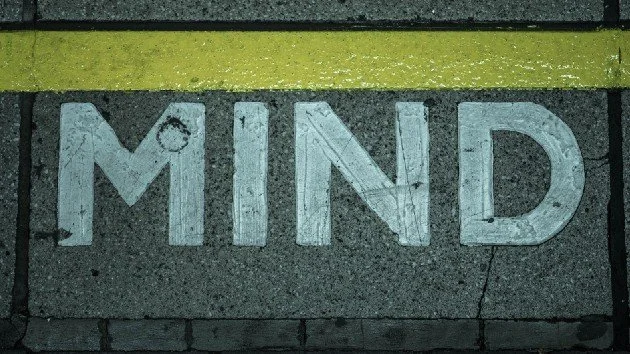You Can Change Your Life Today By Doing This One Thing
The battle of your life happens between your ears.
Photo by Mikel Parera on Unsplash
No two people see or experience the world the same way.
Your mind is the filter of how you experience the world. Therefore, the quality of your mind will determine the quality of your life.
Your mind will determine the amount of success you will achieve in your life.
You can be the most skillful person in the world, but if your attitude sucks you won’t get very far. In this day and age, your skill set has a rapidly diminishing return. Almost every skill can be automated or learned by others relatively quickly.
You can’t rely on your natural talents or specialized skills to get ahead anymore. What starts to matter is how you treat other people, your attitude towards work, and your integrity.
Warren Buffett famously said that his recruitment strategy is to hire someone with “high integrity, high intelligence and a high work ethic.” The first one is the most important, otherwise, you’ve just hired a smart and disciplined criminal.
There is no doubt our minds are complex. But we have a choice to have a positive or negative filter. Our attitude towards life has a self-fulfilling dynamic. Therefore, you can change your life today simply by changing your attitude.
“Many people will wish that similar things had happened in their lives too, completely forgetting that they should be envious rather of the mental aptitude which lent those events the significance they possess when he describes them,” writes Arthur Schopenhauer.
“We, with our mindset, can make people respond to us in a friendly or unfriendly manner, depending on our anxiety or openness. We shape much of the reality that we perceive, dictated by our moods and emotions”
— Robert Greene
Indulging Your Negative Mind
“When you focus on what you lack, you lose what you have.” — Greg McKeown
A mind sensitive to negativity will only see negativity. If you only want to see terrible things in life, you will. Today’s breaking news and social media are designed to make you outraged or sad.
I have a friend who absolutely hates UFC fighter, Conor McGregor. They are constantly talking about how they dislike him because of his attitude and actions. Fair enough. Different strokes for different folks I guess.
But instead of tuning Conor out, they endlessly watch his performances when he fights, hoping he will lose. They obsess over the latest breaking news about him and sit there feeling vindicated in their emotions of hate and disgust.
I found this fascinating.
If you hate someone, why give those emotions oxygen in your mind?
You are allowing them to live rent-free in your thoughts, taking up valuable energy and time that could be directed toward loving someone else in your real life.
The persona of Conor McGregor is polarizing. People love him and some people love to hate him. But do you think he really cares? You still pay money to watch his fights and he is still going home with a $25 million cheque win, lose, or draw.
Indulging your negative mind might feel great at the moment, but it closes you off to other opportunities down the road.
“When we experience negative emotions, our mindset narrows. We are less open to new ideas and people. This weakens our personal physical, intellectual, and psychological resources” writes Greg McKeown.
Negativity means you tend to see the world in black-and-white terms. You’re either right or wrong. Nuance gets thrown out the window along with the baby and the bathwater.
On Pessimism
But our bias toward the negative is not all our fault. We are victims of our evolution.
As humans, we are biased toward negativity. The most ancient part of our brain evolved in an environment of immediate danger. Our more pessimistic hunter-gather ancestors usually ran when they heard a noise in the bush. They always assumed the worst: a tiger or a snake. Run and don’t look back.
Our more optimistic ancestors may have become a tiger’s dinner. Through natural selection, pessimism is what kept our ancestors alive and safe.
In modern life, we are not in a perpetual state of danger anymore, but the negativity bias is software built into us. This is good news. Just like your smartphone, all outdated software can receive regular updates.
Just like you can train your body to be more fit, you can train your mind to be more positive.
Training Your Positive Mind
“When you focus on what you have, you gain what you lack.”
— Greg McKeown
A positive filter opens your mind to new perspectives and possibilities. Not magically, but psychologically. Researchers call this the broaden-and-build theory, where positive emotions encourage new creative ideas and foster social bonds.
So not only are gratitude and optimism essential ingredients for living a better life, but they are also necessary for innovation and empathy. It can be hard to shake hands with a closed fist and explore a new idea without being able to first imagine a better future for the world.
Positive thinking creates an upward spiral of your life that makes the odds of overcoming challenges and achieving success more likely. You are a self-fulling prophecy. If you see positivity, you tend to experience it too.
On Pain and Adversity
I am not trying to say you won’t experience hardships or negative emotions.
Life is hard.
People you love will hurt you or die. You might lose everything you’ve saved in a bad investment. Your house might burn down. Your pet might die. A myriad of hardships will happen to you.
But it is how you choose to let these experiences shape your life that will determine your life. What meaning do you ascribe to them? What plot does that experience add to your life story? Do you see yourself as a victim?
Often the wisest people are those who have experienced the worst of humanity and decided to rise above it.
Nelson Mandela served 27 years as a political prisoner and was tormented daily by the guards. Once released and eventually made President of South Africa, he decided to forgive the guards and spend his energy reconciling and uniting a fragmented country.
Holocaust survivor Victor Frankl trained his mind during his time in the concentration camps to reconnect with the beauty of the world. Faced with the daily threat of death and torture, he simply decided that he wouldn’t let them take his mind from him.
While we don’t face such extreme circumstances, we can still train our minds to do the same thing.
“Although adversity and pain are generally beyond your control, you have the power to determine your response and the fate that comes from that,” writes Robert Greene.
In short, pain is inevitable, suffering is optional. At any moment you always have a choice.
How can you train your mind?
“The greatest discovery of my generation is the fact that human beings can alter their lives by altering their attitudes of mind” — William James
Gratitude: In almost every situation you have a choice to look at the negative or positive side of anything. We are facing extended lockdowns in Melbourne. I can decide to moan and complain about not being able to see my friends and family or I can be grateful that I have people that I miss. I can also be grateful for the amount of money I can save during this time and that I have a job I love and can do remotely. The choice is yours.
Journal: A journal is like having another pair of eyes on your mind. When you write things down you start to notice your thought patterns. You catch yourself thinking positively or negatively. Enhance the positivity, minimize the negativity.
Substitute: You’re allowed to complain, but you need to end with something you’re grateful for. I had a minor disagreement with my brother recently and while I complain to myself I always end with: at least I’ve got people in my life who care and love me enough to speak up. Try it. It’s surprisingly effective.
Let go of emotions: Anger and holding grudges do nothing to the person you feel these emotions towards. All it does is trap you. Forgiveness doesn’t let the other person off the hook, it actually frees you. Buddha once said: “Holding onto anger is like drinking poison and expecting the other person to die.”
Feel but don’t act: You can in your emotions, but not of them. Allow yourself to feel whatever you’re feeling. Greed, anger, jealousy. But create space before you act on them. You can say: “I feel frustrated” without acting out frustration.
Desire is suffering: Naval Ravikant describes desire as ‘a contract you make with yourself to suffer until you get what you want.’ You have one life so choose your desires carefully.
Summary:
How you see and interpret the world will impact how you interface with it. You tend to attract what you see. And see what you attract.
You can change your life simply by changing your attitude toward your circumstances. Ascribe a new meaning to your situation and tell yourself a new story.
“The world in which a man lives shapes itself chiefly by the way in which he looks at it, and so it proves different to different men; to one it is barren, dull, and superficial; to another rich, interesting and full of meaning.”
— Arthur Schopenhauer
___________________________________________
If you enjoyed this article, you can connect with me HERE.
You can also support more of my work by becoming a Medium Member using my referral link: michael-lim.medium.com

